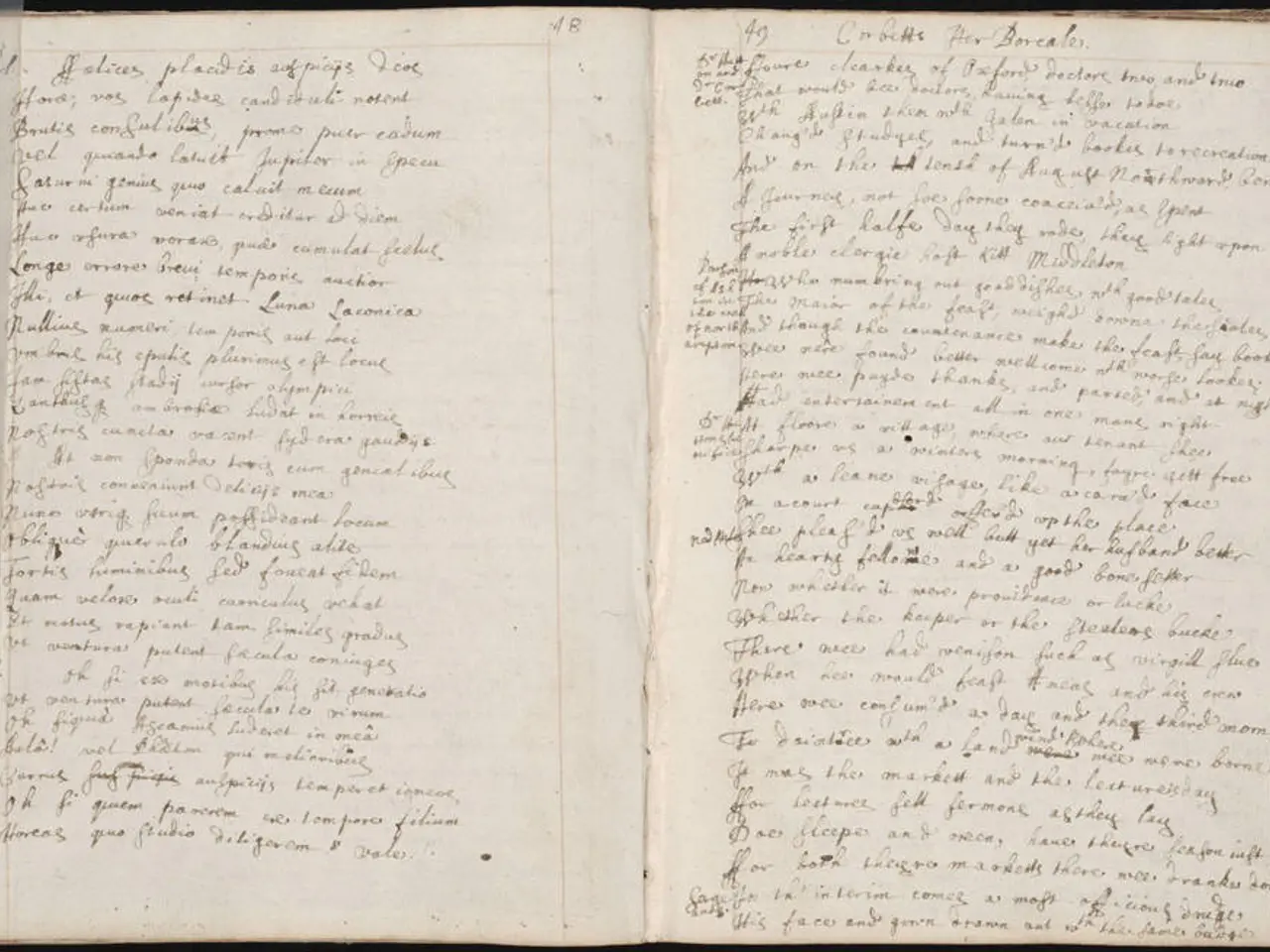Literature: Past events echoing in present-day stories
In the realm of literary discourse, Helena Carvalhão Buesco, a full professor of Comparative Literature, has penned a thought-provoking work titled Imperfect Legacies. This book delves into the dynamic nature of literature as a medium for preserving cultural traditions and connecting different historical periods.
Buesco argues that literature does not merely serve as a static repository of the past, but rather engages actively with what she terms as "imperfect legacies" – inherited narratives and values that are often incomplete, contested, or transformed over time. By reinterpreting and reimagining these legacies, literature serves as a bridge between eras, allowing tradition to evolve rather than merely survive.
Imperfect Legacies posits that literature emerges from a past that is repeatedly present, suggesting that it is a living, breathing entity that constantly responds to and shapes the cultural landscape. This perspective underscores the crucial role literature plays in both preserving and reshaping cultural memory across generations.
While the specific literature or books referred to in Imperfect Legacies are not specified, the book offers a fresh perspective on the enduring power of literature in shaping our collective cultural identity.
Literature, according to Helena Carvalhão Buesco's work Imperfect Legacies, isn't just a repository of the past but an active participant in engaging with imperfect legacies, transforming and evolving over time. This dynamic interplay of literature with cultural traditions extends its influence not only in preserving cultural identity but also in reshaping it, making it comparable to a bridge spanning different eras.
In the realm of entertainment and knowledge, Imperfect Legacies elucidates the role of books in shaping our collective identity by engaging with cultural narratives andvalues, serving as a testament to their enduring power.








